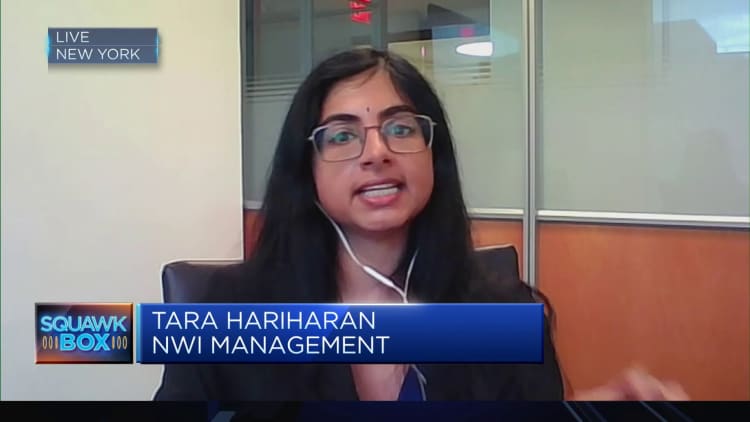SHANGHAI, CHINA – NOVEMBER 04: Buildings at Lujiazui Financial District are illuminated to celebrate the opening ceremony of the 5th China International Import Expo (CIIE) on November 4, 2022 in Shanghai, China.
Vcg | Visual China Group | Getty Images
As China’s post-Covid recovery loses steam and economic data points to slowing growth, investors in the mainland are not expecting much from widely anticipated stimulus measures.
Goldman Sachs’ said its clients in mainland China have “low expectations” for further stimulus measures to prop up the economy, the firm’s economists wrote in a Wednesday note.
The clients, including asset managers in insurance companies, mutual funds as well as private equity funds, said near-term policy easing and structural reform would prioritize tackling hurdles to growth rather than propel growth.
“Local clients held low expectations for policy easing and structural reforms this year,” Goldman’s economists led by Maggie Wei wrote in the note.
“While local clients agreed overall policy stance would be more supportive in the near-term compared with Q2, local clients viewed these additional easing measures as ‘policy put’ to reduce growth headwinds, rather than to generate strong growth,” they said.
This comes after the People’s Bank of China lowered policy rates last month, which included the medium-term lending facility (MLF) rate and loan prime rates (LPR). The moves were a stark contrast to global central banks which have raised rates to bring down inflationary pressure.
Following the policy rate cuts, Wall Street banks are looking to a Politburo meeting that will focus on economic policy, for more significant measures to follow.
Goldman’s onshore clients, however, were of the view that significant measures from upcoming meeting — the second of three such meetings — would be unlikely.
“Local clients did not expect major policy easing measures or structural reform measures to be rolled out in the July Politburo meeting,” the economists added.

Following the central bank’s policy rate cuts, China’s sovereign bond prices rose while the Chinese yuan hovered at its weakest levels since November and traded at 7.2492 against the U.S. dollar on Thursday.
In its April meeting, the nation’s top leaders said the economy lacks internal drive, pointing to insufficient demand.
Goldman’s note added that while its local clients carry a “seemingly less pessimistic view” on China’s near-term growth, they remain cautious about a longer-term trajectory for the economy.
But it’s not just Chinese investors that have lingering doubts about the economy’s outlook.

Tara Hariharan, NWI Management managing director of global macro research, told CNBC’s “Squawk Box Asia” that investors are becoming more pessimistic about China’s economy.
“Investors have become increasingly disillusioned and disengaged from China’s slowing growth, tighter regulatory policy, as well as, of course, this general souring of official U.S.-China relations,” said Hariharan.
She said that unless significant measures are taken, reviving investor sentiment may not be a quick fix.
“I think China is trying its best to go on a charm offensive by making overtures to U.S. corporates to say do more business in China, and also reviving these government-level communications,” she said.
“I think these charm offensives will do very little to revive portfolio flows in the short-term unless we get some very significant and innovative policy actions to revive Chinese growth.”


